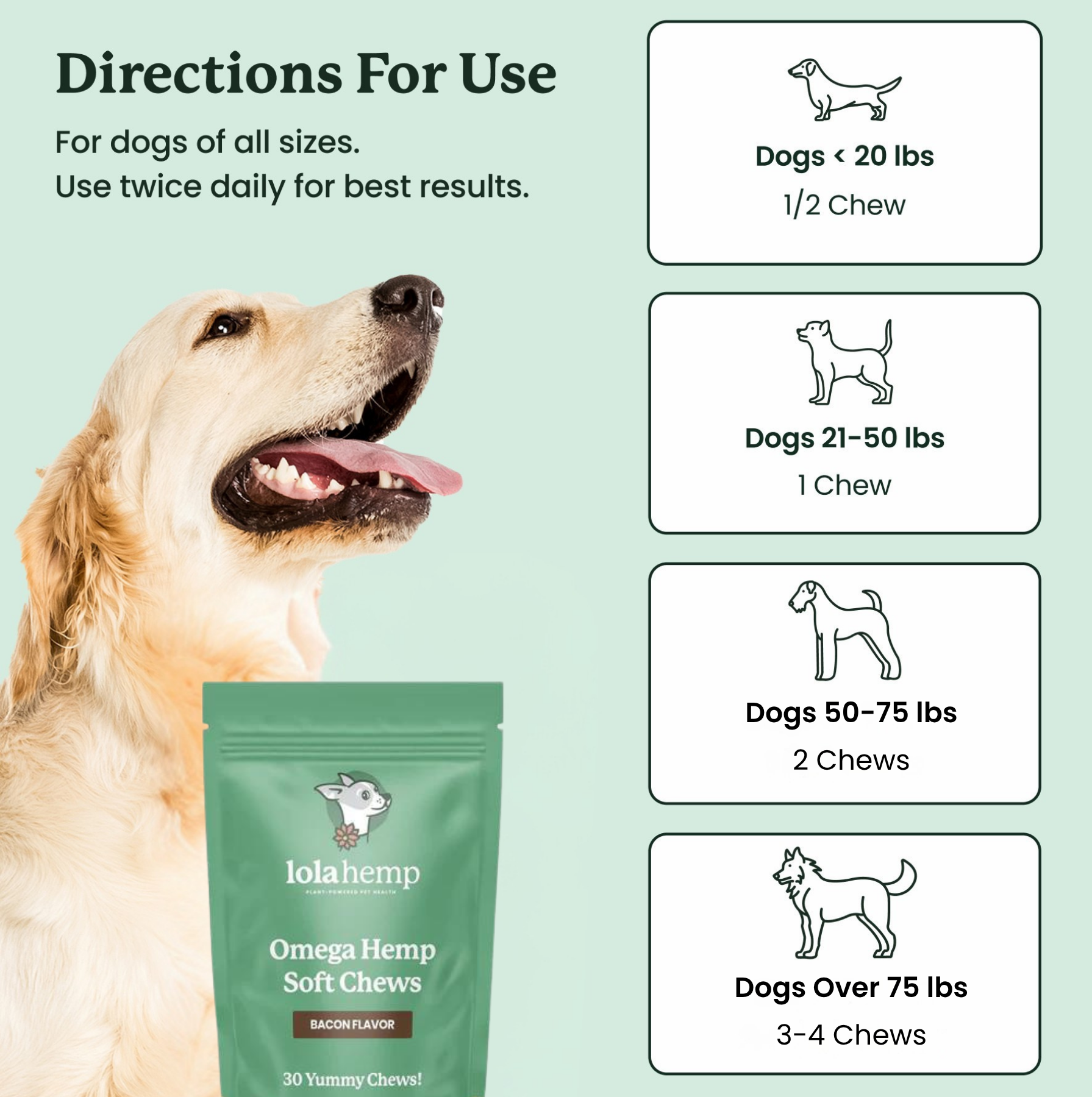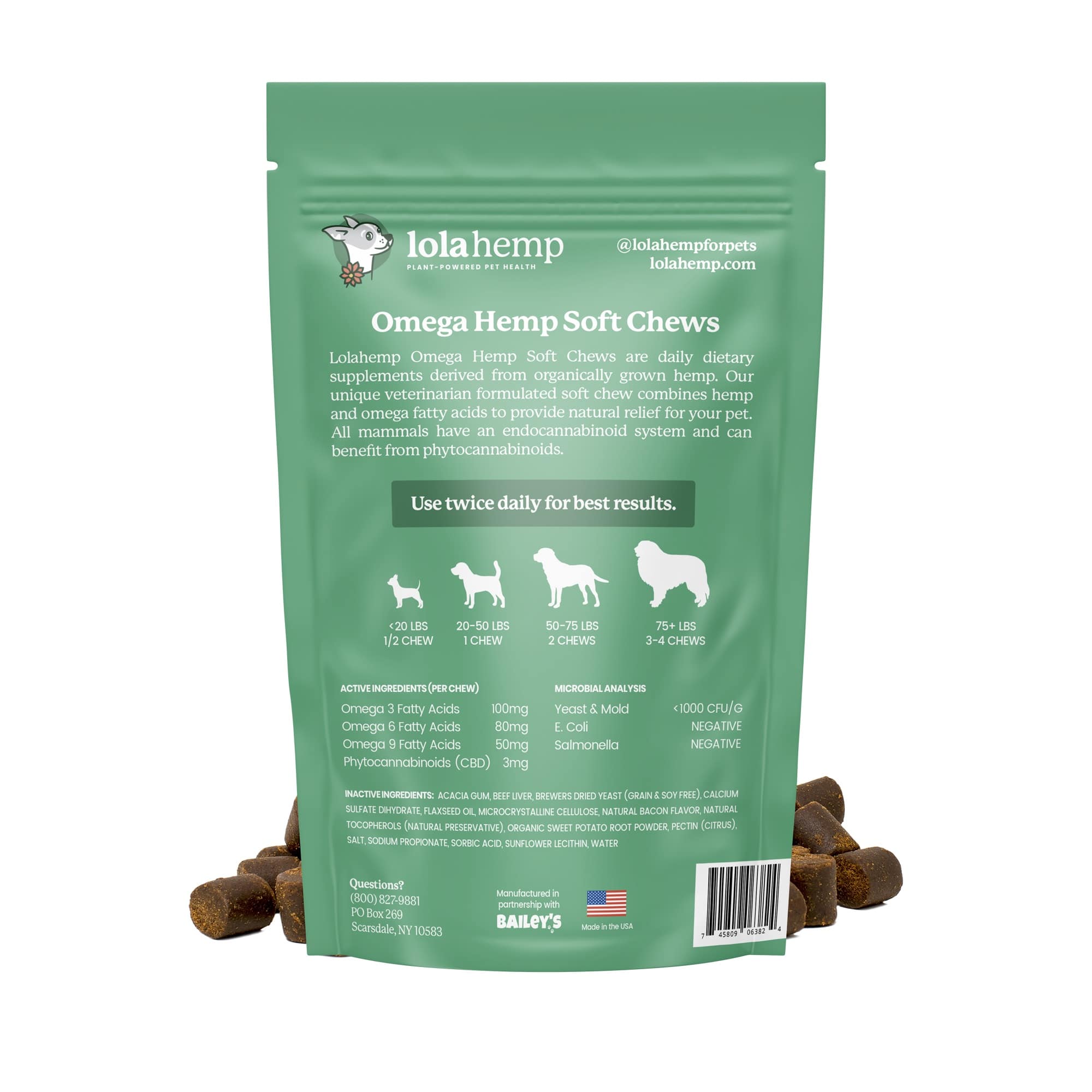Carprofen is a widely used NSAID to treat pain and inflammation in dogs. This article covers how carprofen works, its common applications, recommended dosages, and potential side effects.
Our hope is to give you a general overview so you're more informed when you're talking to your vet about this medication.
If you're interested in more natural options for inflammation relief, view our article on natural pain relief for dogs.
- Key Takeaways
- Understanding Carprofen for Dogs
- How Carprofen Works in Canine Patients
- Administering Carprofen: Dosage Guidelines
- Onset of Action: How Quickly Does Carprofen Work?
- Side Effects and Adverse Reactions to Carprofen
- Contraindications: Which Dogs Should Avoid Carprofen?
- Drug Interactions with Carprofen
- Frequently Asked Questions about Carprofen for Dogs
- Conclusion
Key Takeaways
- Carprofen is an FDA-approved NSAID specifically for dogs, effective in managing pain and inflammation with fewer side effects than steroids.
- Common uses of Carprofen include treating arthritis and postoperative pain, enhancing the quality of life for canine patients.
- Potential side effects include gastrointestinal issues and, rarely, liver and kidney concerns; careful monitoring and consultation with a veterinarian are essential.
Understanding Carprofen for Dogs

Carprofen, a non-steroidal anti-inflammatory drug (NSAID), is specifically designed for canine patients and has been approved by the FDA.
Unlike steroids, which can have a multitude of negative side effects, Carprofen can be a safer option for treating pain and inflammation in dogs. It is often effective in managing conditions such as arthritis and postoperative pain.
How Carprofen Works in Canine Patients
Carprofen works its magic by inhibiting cyclooxygenase (COX) enzymes, specifically targeting COX-2, which plays a crucial role in the pain and inflammation pathways.
Administering Carprofen: Dosage Guidelines
When it comes to administering Carprofen, following your veterinarian’s instructions is crucial.
The recommended dosage for Carprofen in dogs is 4.4 mg/kg once daily or 2.2 mg/kg twice daily based on the dog’s weight. For acute pain, the dosage is typically 1 mg/kg administered via various routes such as IV, SC, IM, or PO every 24 hours for up to five days.
Carprofen is available in different forms, including oral tablets, chewable tablets, and injectable solutions, making it easier to administer based on your dog’s needs. Giving Carprofen with food helps avoid stomach upset and aids digestion. This simple step can significantly reduce the risk of gastrointestinal issues.
Onset of Action: How Quickly Does Carprofen Work?
One of the standout features of Carprofen is its quick onset of action.
Typically, Carprofen begins to alleviate pain and inflammation within 1 to 2 hours after administration. This rapid relief is crucial for dogs suffering from acute pain or inflammation, providing them with comfort in a relatively short amount of time.
Side Effects and Adverse Reactions to Carprofen
While Carprofen is generally safe for most dogs, it’s essential to be aware of potential side effects and adverse reactions. Common side effects include gastrointestinal issues such as vomiting, diarrhea, and abdominal pain. However, more severe reactions can occur, including significant gastrointestinal toxicity, liver enzyme elevation, and kidney issues.
Monitoring your dog for any signs of discomfort or behavioral changes while on Carprofen is important. If you notice severe symptoms like bloody diarrhea or abnormal behaviors, consult your veterinarian immediately.
Gastrointestinal Issues
Carprofen commonly leads to gastrointestinal issues. These are among the most frequent adverse effects linked to the medication. Dogs may experience vomiting, diarrhea, and abdominal pain when taking this medication. Constipation can also occur, although it is less common.
The good news is that these gastrointestinal effects typically cease after discontinuing Carprofen. However, it’s essential to avoid stomach upset by giving the medication with food, as directed by your veterinarian.
Liver and Kidney Concerns
Although rare, Carprofen has been linked to liver or kidney damage, particularly in dogs with pre-existing health issues. Only a small percentage of dogs experience liver damage as a side effect of Carprofen, but regular blood tests are crucial to monitor liver enzyme levels and overall kidney function.
Labrador Retrievers, in particular, are overrepresented in cases of idiosyncratic hepatotoxicity, making it essential to monitor this breed closely when they are on Carprofen.
Allergic Reactions
Allergic reactions to Carprofen, although rare, can be severe. Signs of an allergic reaction include hives, skin redness, and facial swelling. These symptoms indicate a significant adverse reaction and require immediate veterinary attention.
In extreme cases, allergic reactions can be life-threatening. If you observe any signs of an allergic reaction, it’s imperative to consult your veterinarian immediately to ensure the safety and well-being of your dog.
Contraindications: Which Dogs Should Avoid Carprofen?
Carprofen is not suitable for every dog. It is contraindicated in dogs with bleeding disorders, such as Von Willebrand’s disease, as it can exacerbate these conditions.
Additionally, caution should be exercised in dogs with liver or kidney disease, as Carprofen can potentially worsen these conditions.
Before starting Carprofen, it’s advisable for dogs to undergo blood tests to assess their overall health condition and ensure they can safely take this medication. Dogs with a history of allergic reactions to Carprofen or other NSAIDs should avoid this drug entirely.
Dehydrated dogs or those on diuretics are at a higher risk for renal complications when taking Carprofen. Following your veterinarian’s instructions closely and monitoring your dog for any signs of adverse reactions is vital.
Drug Interactions with Carprofen
Carprofen can interact with other medications, potentially leading to adverse effects. Combining Carprofen with other NSAIDs can heighten the risk of gastrointestinal toxicity and other adverse reactions. Additionally, Carprofen may affect the metabolism of certain drugs by altering their serum levels.
Drugs affecting liver enzymes can also influence the effectiveness of Carprofen, making it essential to discuss all medications your dog is taking with your veterinarian. Using Carprofen alongside anticoagulants may increase the risk of bleeding, so careful monitoring is necessary.

Frequently Asked Questions about Carprofen for Dogs
What is Carprofen used for in dogs?
Carprofen is used to treat pain and inflammation in dogs, commonly prescribed for arthritis, joint conditions, and postoperative recovery.
How quickly does Carprofen work?
Carprofen typically starts relieving pain and inflammation within 1 to 2 hours of administration, offering relatively fast comfort to affected dogs.
Can I give my dog Carprofen daily?
Yes, Carprofen is safe for daily use under veterinary supervision. However, long-term use requires regular monitoring of liver and kidney function.
What should I avoid giving with Carprofen?
Avoid combining Carprofen with other NSAIDs or steroids, as this can increase the risk of gastrointestinal or liver issues. Always consult your vet before using additional medications.
What are signs my dog might be reacting badly to Carprofen?
Watch for vomiting, diarrhea, loss of appetite, lethargy, or yellowing of the eyes or gums. These symptoms could indicate a serious reaction requiring immediate veterinary care.
Conclusion
Carprofen has proven to be a valuable tool in veterinary medicine for managing pain and inflammation in dogs. Its effectiveness in treating conditions like arthritis and postoperative pain, combined with its relatively safe profile, makes it a preferred choice for many veterinarians. However, being aware of potential side effects, contraindications, and drug interactions is crucial to ensure your dog’s safety.
In conclusion, Carprofen can significantly improve your dog’s quality of life when used correctly. Always consult your veterinarian to tailor the treatment to your dog’s specific needs and monitor for any adverse reactions. With the right care and attention, you can help your furry friend lead a happier, pain-free life.









